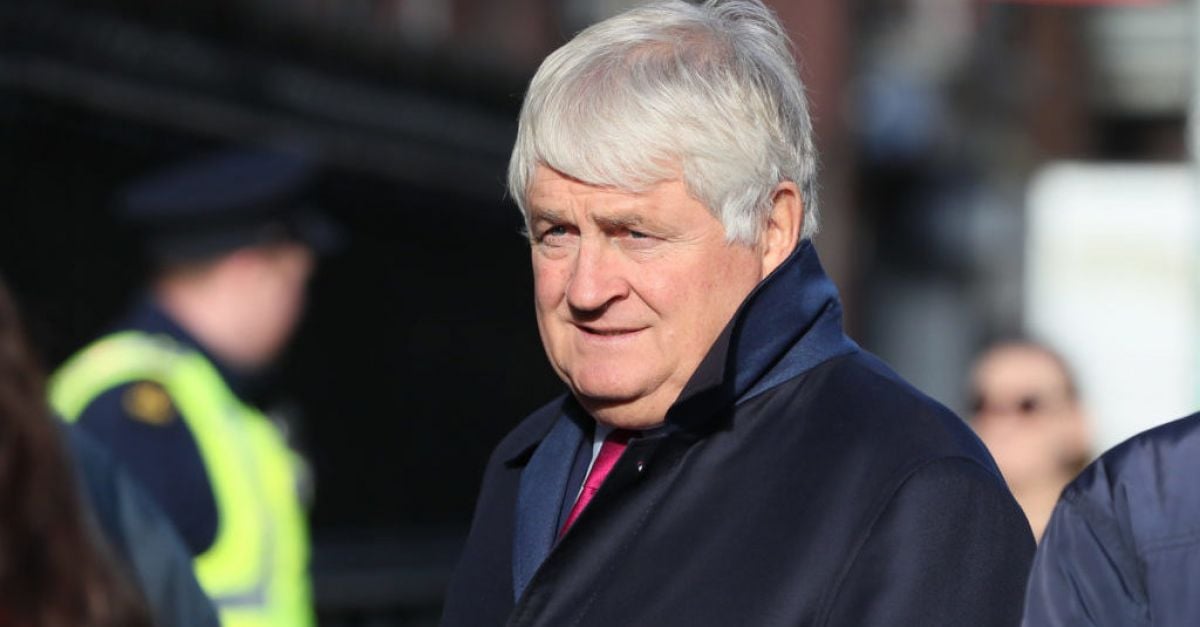Bussiness
Denis O’Brien sues over ‘fake adverts’ on social media using his name and image | BreakingNews.ie

Businessman Denis O’Brien is seeking High Court orders requiring Internet giant Meta to provide him with information about those behind allegedly “false and malicious” advertisements containing his name and image that have been posted on its platforms.
Mr O’Brien claims that since last August his name and image have been used in a series of fake adverts, which are being used in “a clear campaign to promote dubious financial schemes including cryptocurrency investments” to users of the social media platform’s services via Meta Ads.
The businessman says he has nothing to do with these schemes advertised on Facebook and Instagram, and does not know who is behind the large number of adverts that have been posted.
The well-known businessman claims the adverts are defamatory of him, and that “the scale of the problem is large”.
Some of the ads in question show footage of manipulated and merged interviews of Mr O’Brien, and include statements that he never made about various products and services with which he has no association.
Some of the adverts, which he claims are quite sophisticated, have dubbed over the original soundtrack and contain audio that is not Mr O’Brien’s voice.
In addition, the timing of the voice to mouth in the adverts is almost perfect, it is claimed.
He claims the advertisements breach his rights to privacy, and his good name, his rights under GDPR and his property rights.
As a result, he seeks damages for defamation, malicious falsehood, unlawful appropriate of his property, passing off, and for various alleged breaches of the Data Protection Laws and his constitutional rights.
He intends to bring his proceedings against the parties behind the adverts as well as Dublin-based Meta Platforms Ireland Limited, which is the social media giant’s European HQ.
The fake ads, he claims, breach EU law on fraud and deception, spam, and in relation to the integrity and authentic identity of account holders.
He also seeks injunctions restraining the further publication of statements about him through the Meta Ad tool, and orders preventing his name and image being linked or connected to any endorsement of any financial product or service or cryptocurrency trading product without prior notification to the businessman.
Norwich Pharmacal order
As part of his claim, Mr O’Brien seeks an order, known as a Norwich Pharmacal order. This order requires Meta’s Irish subsidiary to provide the plaintiff with all the information it has in its possession that will assist him in identifying those who have placed and paid for the adverts on Meta platforms.
The information sought includes the full names of those who have paid for and have placed the adverts, their email addresses, phone numbers, physical addresses, the date time and IP addresses of all the login and logouts for each of the relevant accounts, and details of the payment methods linked to the relevant accounts.
Represented by Paul O’Higgins SC, appearing with Anna Shanley Bl instructed by Meaghers Solicitors said that there has been some correspondence with Meta and his client over the matter.
Meta had agreed to provide his client with certain limited basic identifying information, provided that the court granted the order sought.
Counsel said it is part of Mr O’Brien’s claim that Meta is not properly complying with a regulation contained in an EU Directive, which came into being last February, which requires it to clearly identify the natural and legal persons on whose behalf the adverts were placed.
The directive, it is claimed, obliges Meta to maintain a repository of all adverts published on their online interfaces containing specific information for the time they are displayed and for a year after the adverts were removed.
The repository must also include information about the service or product on offer in the advert, the person on whose behalf the advert is presented, and who paid for the advert.
There is further an obligation that viewers of adverts on large platforms such as Facebook and Instagram to identify in a clear concise and unambiguous manner who has placed the advert, and who paid for the advert.
Compliance
Counsel said that following an examination of Meta’s ad library, his client has been unable to obtain any meaningful information about the identities of those behind the advert.
Mr O’Brien claims that the aim of the EU Directive is to ensure that anyone who views adverts on Meta’s platforms can immediately identify the legal and natural person with whom they are dealing.
It is claimed that if Meta was properly complying with its obligations under the regulations, the application to the court for disclosure orders may not have been necessary.
It is further claimed that Meta Ireland appears to have taken no steps to ensure that the name provided by the advertiser is either a real name or legal entity.
The matter came before Mr Justice Mark Sanfey on Thursday.
The judge granted Mr O’Brien’s lawyers permission, on an ex-parte basis, to serve short notice of the proceedings on Meta Platforms Ireland.
The judge, noting submissions from Mr O’Higgins that several other individuals, including Tánaiste Micheál Martin, and broadcaster Miriam O’Callaghan, have made similar applications before the courts over misleading adverts on social media platforms, expressed his hope that matters could be agreed between the parties in a relatively short period of time.
The matter was adjourned to a date later this month.










